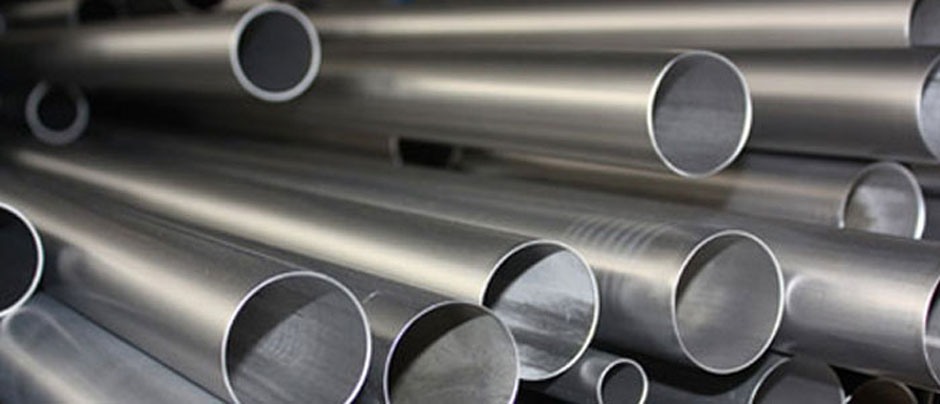304 stainless steel tubes are a staple in various industries due to their remarkable blend of strength, durability, and versatility. As a type of austenitic stainless steel, 304 offers excellent resistance to corrosion and high-temperature stability. In this blog, we’ll explore the features and benefits of 304 stainless steel tubes and why they are an essential choice for many applications.
What Are 304 Stainless Steel Tubes?
Austenitic stainless steel, which is renowned for its formability and resistance to corrosion, is used to make 304 stainless steel tubes. This type of stainless steel is especially well-liked for uses where excellent machinability and weldability are necessary. It is widely employed in many sectors, including the food processing and construction industries.
Composition of 304 Stainless Steel Tubes
The composition of 304 stainless steel tubes includes:
- Chromium (18-20%): Provides corrosion resistance by forming a passive oxide layer on the surface.
- Nickel (8-10.5%): Enhances corrosion resistance and contributes to the steel’s austenitic structure.
- Carbon (≤0.08%): Low carbon content helps improve weldability and reduces the risk of carbide precipitation.
- Iron Forms the base metal.
- Manganese, Silicon, and Phosphorus: Present in small amounts to enhance the alloy’s overall strength and workability.
Features of 304 Stainless Steel Tubes
- Corrosion Resistance: One of the standout features of 304 stainless steel tubes is their excellent resistance to corrosion. This makes them ideal for use in environments where they are exposed to moisture and chemicals, such as in marine and industrial applications.
- High-Temperature Performance: 304 stainless steel maintains its mechanical qualities and strength at high temperatures, which qualifies it for use in hot environments.
- Good Weldability and Formability: The austenitic structure of 304 stainless steel allows for easy welding and forming, making it a versatile choice for a variety of fabrication processes.
- Aesthetic Appeal: 304 stainless steel tubes have a smooth, polished surface that resists tarnishing and staining, which is beneficial for architectural and decorative applications.
- Strength and Durability: With high tensile strength and durability, 304 stainless steel tubes are suitable for structural applications where robustness is required.
Benefits of Using 304 Stainless Steel Tubes
- Versatility: 304 stainless steel tubes are used across a broad spectrum of industries due to their versatility. They can be found in applications ranging from food processing to construction.
- Long-Term Reliability: The corrosion resistance and durability of 304 stainless steel ensure long-term performance and reliability, reducing the need for frequent replacements.
- Maintenance-Free: The smooth surface and resistance to corrosion reduce maintenance needs, leading to cost savings over time.
- Hygiene and Safety: 304 stainless steel tubes are valued for their sanitary qualities and ease of cleaning in industries including food processing and pharmaceuticals.
Applications of 304 Stainless Steel Tubes
- Construction and Architecture: 304 stainless steel tubes are used in structural applications, including handrails, supports, and architectural elements, because of their aesthetic appeal and durability.
- Food Processing and Pharmaceutical Industries: In these sectors, 304 stainless steel tubes are used for pipelines, tanks, and equipment where hygiene and corrosion resistance are critical.
- Marine Industry: Due to their resistance to seawater and marine environments, 304 stainless steel tubes are used in boat fittings, heat exchangers, and other marine applications.
- Chemical and Industrial Applications: 304 stainless steel tubes are employed in various chemical and industrial processes where exposure to chemicals and high temperatures occurs.
- Automotive Industry: The tubes are used in exhaust systems and other components where strength and resistance to harsh conditions are needed.
For those looking to source high-quality 304 stainless steel tubes, partnering with a reputable 304 stainless steel tube supplier can ensure that you receive products that meet industry standards and specifications.
Conclusion
304 stainless steel tubes are a reliable and versatile option for most applications because of their corrosion resistance, high-temperature performance, and ease of fabrication. Their composition and features make them suitable for a wide range of industries, ensuring long-lasting performance and minimal maintenance. Whether used in construction, food processing, or marine environments, 304 stainless steel tubes offer a blend of strength, and aesthetic appeal that makes them an essential material in modern engineering and manufacturing.


